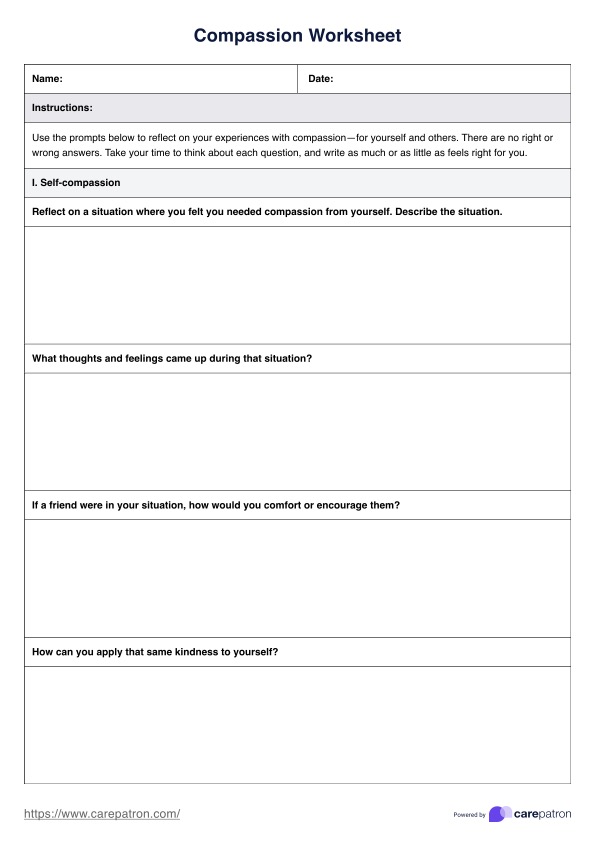The Compassion Worksheet helps individuals address critical self-talk and self-criticism, which often contribute to mental health problems such as anxiety and depression. The worksheet fosters a greater sense of common humanity and understanding by guiding clients through exercises that explore self-compassion and encourage acceptance. It is like a self-compassion journal designed to reduce stress and negative emotions while promoting well-being, self-kindness, and greater life satisfaction.

Compassion Worksheet
Use our Compassion Worksheet to guide clients in developing compassion and understanding toward themselves and others.
Compassion Worksheet Template
Commonly asked questions
The worksheet provides structured self-compassion exercises that help clients reflect on how they respond to challenges and develop self-compassion. For example, they may explore how self-compassionate people would approach similar struggles or use a self-compassion break to reframe moments of critical self-talk. By focusing on self-care and recognizing their shared human experience, clients develop a healthier perspective on their emotions and learn to treat themselves with more kindness and self-acceptance, even when they make mistakes.
Clients who typically respond to their own mistakes with harsh self-criticism often feel bad about themselves and struggle to move forward. The worksheet guides them to replace self-judgment with self-kindness and understanding. Prompts encourage clients to reflect on how they would treat a close friend in a similar situation and to apply that same care to themselves. This process, rooted in positive psychology, helps clients reduce stress and improve their ability to manage difficult emotions effectively.
EHR and practice management software
Get started for free
*No credit card required
Free
$0/usd
Unlimited clients
Telehealth
1GB of storage
Client portal text
Automated billing and online payments











